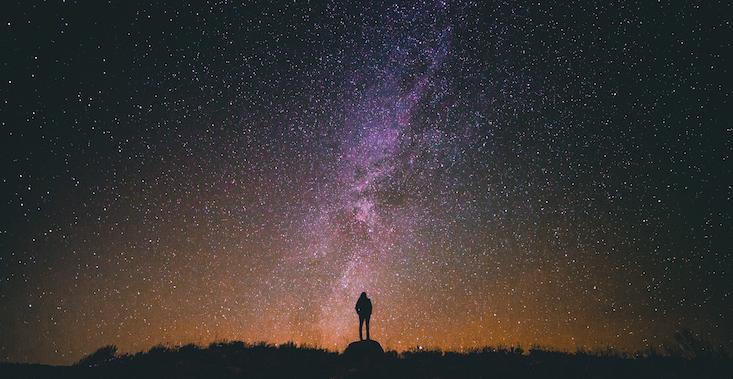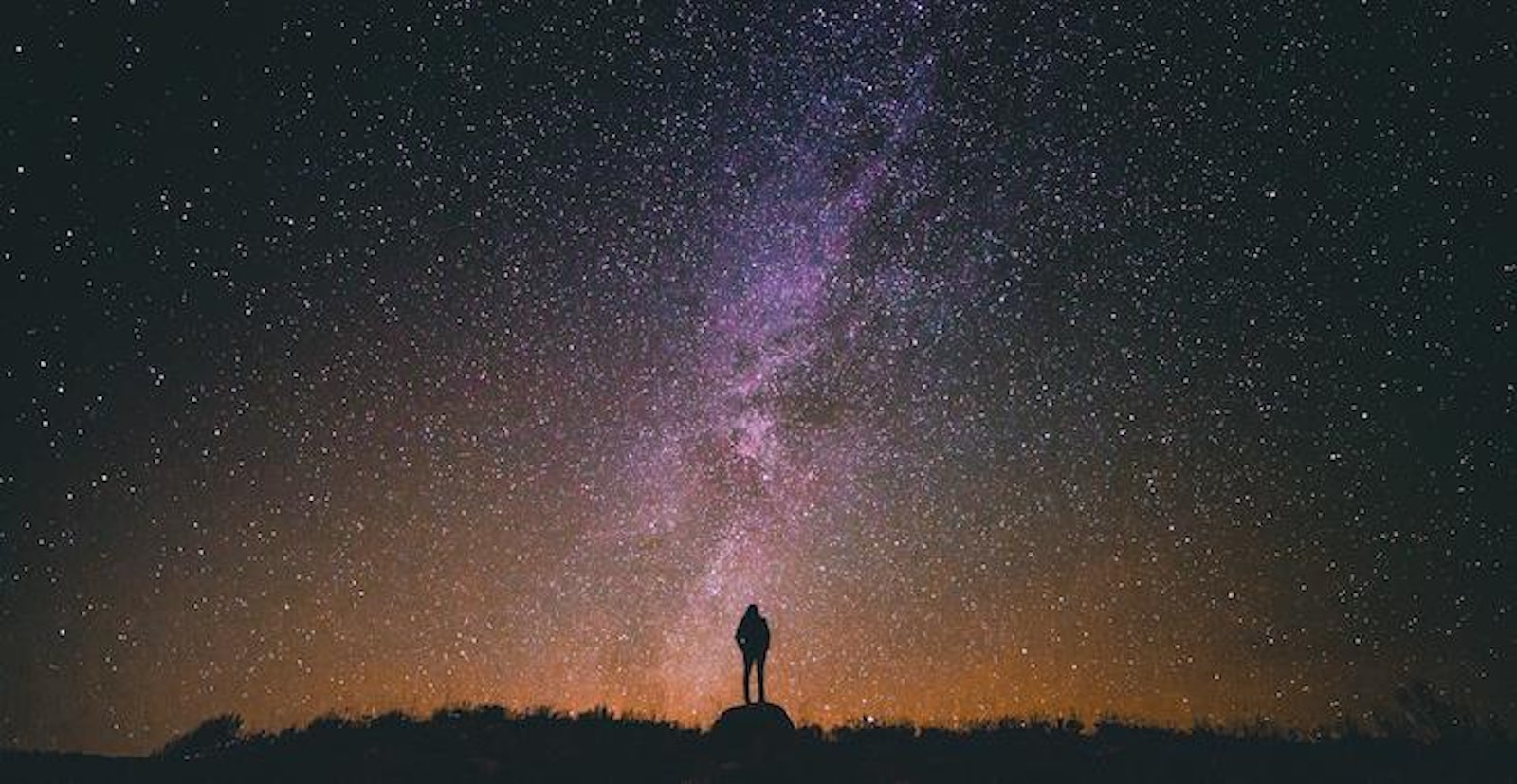
I am often asked how I cope with the vast and seemingly incomprehensible abyss beyond Earth. As with modern politics, it’s thought that contemplating the cold, indifferent, cosmos—as I do for a living—can make us feel small, powerless, and unimportant: specks of dust flickering in the void for what would hardly qualify as a cosmic instant.
But when Earthly concerns anger, frustrate, and depress us, taking a cosmic perspective can often lift one’s spirits rather them dampen them. Consider, for instance, that the very features of the universe that seem to proclaim our existential unimportance—like its 13.8-billion-year lifespan, the hundreds of billions of galaxies that evidently exist beyond our own, or the fact that the best model of cosmology cannot rule out a spatially infinite universe—are vital prerequisites for our existence. As Carl Sagan put it so aptly in his legendary book, Cosmos, “If you wish to make an apple pie from scratch, you must first invent the universe.”
This is not anthropocentric bias or self-congratulation.
In the cosmic scheme, it ultimately takes billions of years just to make enough scratch! After the Big Bang, 13.8 billion years ago, the universe was essentially composed of hydrogen, helium, and a few trace elements. These alone are woefully insufficient as inputs for baked goods, let alone sentient beings capable of using physics and chemistry to transform said ingredients into snacks. Instead, heavier elements, like carbon, oxygen, and iron, are needed, built up from lighter elements in the cores of massive stars through nuclear fusion. Near the ends of their lives, a key fraction of stars violently explode as supernovae, redistributing the bounty of heavy elements back to the cosmos as building blocks for new generations of stars—more complex and possibility laden—than their predecessors.
Eventually—after several overlapping generations of stars, with most forming a suite of diverse planets from their primordial gas clouds collapsing under gravity—the universe produced our own solar system around 4.5 billion years ago, hosting a fleet of rocky and gaseous worlds orbiting stably around a biologically friendly, long-lived, star. It then took nearly a billion more years for single-celled Earth life to evolve, around 3.8 billion years ago. By the time anatomically modern humans emerged about 200,000 years ago, the universe had already been around for 13.7998 billion years! In a cosmos only a few thousand, or even a few million, years old, you would likely never have had the chance to exist.
Big size is as essential as old age. Consider just the part of the universe we can observe. Since Edwin Hubble’s landmark discoveries in the late 1920s and early 1930s, we have known that the universe has been expanding since the Big Bang. This means that the average distances between gravitationally bound systems, like clusters of galaxies, are increasing over time. What’s more, the cosmic expansion rate is itself speeding up. The most distant region we can observe today is the spherical surface that emitted the cosmic microwave background radiation, the afterglow of the Big Bang, which began its journey to us about 400,000 years after the universe exploded into being. Given that cosmic expansion has been accelerating during that light’s journey to us, cosmologists extrapolate that galaxies that later formed just beyond these distant locations are now, roughly, 46 billion light years away! We thus have enormous confidence that merely the finite, observable, portion of the universe is ridiculously large.
The billions of years of cosmic history and healthy densities of matter required to form the Milky Way, the Sun, the Earth, and us essentially guaranteed that we would find ourselves embedded in an enormous space filled with hundreds of billions of galaxies. This suggests that, despite our obvious limitations, human beings are, in fact, remarkably important, in the sense that all that space, time, and matter were necessary for us to even exist. Contemplating cosmic history isn’t alienating; it’s affirming.
This is not anthropocentric bias or self-congratulation, but rather a direct inference from empirical observations and our best physical theories. At least for me, evidence-based, non-mythological stories that place us in a cosmic context provide exactly the right message of meaning and hope, especially now, when it is remarkably easy to feel powerless amidst the rising tide of fear and willful ignorance.
Andrew Friedman is a Research Scientist working in astronomy and cosmology at the UC San Diego Center for Astrophysics and Space Sciences, as well as a Research Affiliate with the MIT Program in Science, Technology, & Society. He lives in San Diego, California.
WATCH: Can we ever know the full history of the universe?




















